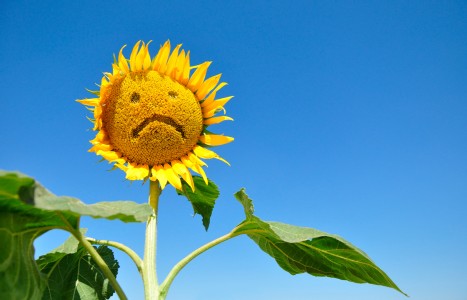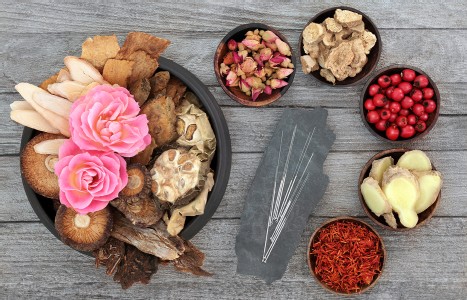Did any of you ever get the feeling in school that it simply was not OK to speak about wanting to be successful? To get into the nitty gritty details of how to make money in practice? Maybe you were even someone like me who was directly told by someone in a position of power that I needed to take what I could get because in private practice, I wouldn’t make money.
Suffering Makes Us Human
It is possible that suffering, instead of being something negative, can be one of the greatest gifts to bring out one's humanity — if we allow it to be. The key is to learn to cultivate patience and presence with the experience, and in this way learn and receive the gifts that come from the suffering. For every illness, every pain, is a blessing — it is a gift that can teach us, that can help us to grow as individuals. Often, it is only by being present with our suffering that our deepest humanity can be revealed.
In Buddhism, the first noble truth is often translated and stated as, "Life is suffering." I would like to approach this from a different perspective, to examine the possibility that "suffering makes us human." In other words, I propose that suffering has the ability to humanize us. It can be one of the most powerful forces to bring out our humanity, if we allow it to. It is not simply that life is suffering, but that to truly be alive entails suffering because in order to truly be alive and fully access our potential we have to open our hearts to the depth of moment-to-moment experiential awareness. And through doing so, through allowing ourselves to be vulnerable and opening our hearts deeply, we open ourselves to overwhelming amounts of suffering — that of ourselves and of everyone we care about.
However, if we allow it to, this experience of suffering can temper us, can humble us, and can be the vehicle that brings us into the present moment of experiential reality. Suffering has the ability to refine and purify us. It can be likened to the fire of the alchemist's crucible, which has the power to remove all impurities from our hearts and souls and return us to our natural state of compassion, love, wisdom, and humility. Intense, overwhelming suffering can force us to surrender, to relinquish the illusion of control and power over our outer circumstances, and thus to find the true power and freedom that we have within.

I once heard a teacher describe this process as being like the formation of a pearl. As we begin to open our hearts, it is like the oyster first opening its shell. As the oyster opens, a grain of sand is able to enter in, which scratches at the flesh deep inside the oyster, just as the suffering of life hits us as we first open our hearts. And over time, the grain of sand continues to scratch deeper and deeper, just as the sufferings of life seem to become greater and greater the more we open our hearts. And yet over time, through that continual suffering, a pearl is formed. This is the pearl of wisdom and compassion, which often can only be formed through enduring and being present to suffering. Being patient with suffering brings out our humanity.
It is hard being human. There is much unavoidable suffering that comes with being human. There is physical suffering from illness and trauma, emotional suffering from heartbreak and betrayal, mental suffering from stress at work and living in modern society, and spiritual suffering from feeling disconnected within oneself and from something greater than oneself. What do we do when there is unavoidable suffering? What do we do when there is severe physical trauma, heartbreak, or spiritual loss?
In response to suffering, it is common to want to find some way to make the suffering stop, to escape the suffering, to find the right pharmaceutical (or recreational) drug, to find the right technique or procedure, or to simply tune out as much as possible using the escapism of consumerism, television, and other coping mechanisms. Instead of viewing illnesses, pain, and discomfort as part of oneself and part of one's experience, oftentimes we instead learn to judge such experiences as proof of that which is wrong within us and to seek a way to change it. However, such non-acceptance of oneself and one's experience merely amplifies and magnetizes the suffering further.
In truth, experiencing suffering is not an indication of something being wrong, it is an indication of our humanness. Being human means taking part in life, which entails suffering. The key is to learn to cultivate patience and presence with the experience, and in this way learn and receive the gifts that come from the suffering. For every illness, every pain, is a blessing — it is a gift that can teach us, that can help us to grow as individuals, if we will allow it. But in order to allow our suffering to teach us, to transform us, we have to take responsibility for ourselves. We have to come face to face with our current experience and not run away from it, not try to hide from it, and not try to find someone else to take it on or take it away from us. To take responsibility for our experience is to embrace our humanity, to embrace who we are as individual humans, in this very moment.
As science and technology continue to develop, eventually we will find that everyone has some form of disease, that everyone has some genetic issue, that nobody is perfect according to the scientific model. This is not a problem — this is the source of our individuality, of our creativity, of our beauty. Our weakness is actually our greatest strength, for it is often in overcoming the challenges that are unique to us as individuals that we uncover our greatest individual gifts, talents, and skills. It is in this journey through suffering that we uncover our greatest beauty, and our greatest humanity.
In the history of humanity, there is not a single person who has avoided all suffering. In fact, the more one tries to avoid suffering, the more one tends to shut down all feeling, including their ability to truly live, to connect deeply with others, and to truly be human. This is not to say that one should consciously seek out suffering, or intentionally cause oneself to suffer, for this is also a form of attachment. If one tries to avoid suffering, or if one seeks out suffering, one denies the experience of the moment. The key is to hold the current experience at the limit of one's awareness, neither pushing it down and repressing it nor projecting it outward. If instead, you simply allow it to rest at the pivot of your being, at the limit of your awareness as an individual, it will transform, and it will fundamentally transform you as an individual.
It is by extending compassion to others that wisdom can be cultivated; for it is by opening up to others' suffering that we begin to see how their behavior often stems from ignorance, delusion, and pain. If we do not extend enough compassion, then we simply stop at judging them for their actions and seeing the person as their behavior, rather than seeing that the behavior is not the truth of who the person is. This starts with oneself – as one extends greater compassion to oneself, and begins to discern where all of the unskillful behaviors come from (that they come from pain, suffering, and separation within self), then it becomes easier to not judge oneself. One can then extend this to others, and not judge them for their "faults." In the end, we all have conditioned states of being and challenges to work through, and conversely we all have the potential to exist in the natural state — the state of experiential awareness, fully connected within ourselves and also connected to everyone and everything else around us. Often, it is only by being present with our suffering that our deepest humanity can be revealed.



